Inside This Article
So many voice teachers ask me… what’s the best way to teach x, y or z? And they are – complete with fist pounding and face scrunching – invariably perplexed by my response, because I usually, with a somewhat trouble-maker look, respond with some variation of: “The best way to teach x, y or z is NOT TO TEACH IT AT ALL!“
Most times they say: “What?!? What do you mean?”
Then I say, in a much softer and gentler tone: “Ok, let me explain…”
So… let me explain to you too!
ORGANIC LEARNING
The best kind of learning is “organic learning”, which is the kind of learning in which a person engages in their own developmental process of curiosity and interest, trial and error, variation and discovery around whatever it is they are learning WITHOUT someone else telling them what’s “good” or “bad,” what they “should” or “shouldn’t” do, etc. They can make their own determinations about what they like and don’t, what feels good and doesn’t, what interests them or not and feel free to change their mind and adjust their approach at any time along the way. It’s personal. Idiosyncratic.
And, the process has a life of its own; a momentum.
Does that mean there are no external influences at all…? No, but they are chosen by, and evaluated by the learner as they progress and develop in their own way and WITHIN their own process.
So, if this is a kind of “ideal learning situation,” generally speaking, how would this work when singing is the interest and action in question? And is there any room for a voice teacher in this kind of personal, organic learning process related to voice?
With singing, this kind of organic learning process would normally include LOTS of experimenting, playing, listening, following what one likes, developing a vocal style that feels good and intentional, personal, yet also outwardly successful.
We all remember listening to and singing along with our favorite singers when we were young and trying to do what they do, of course, but it goes beyond that. We also make funny sounds, experiment with different “voices” and sounds. I, for one, sang and sang and sang – in the shower, on my bike, in my room – and I, since I was obsessed with harmony at a young age, would always try to add new/extra notes to chords when I was listening to music with vocal harmony.
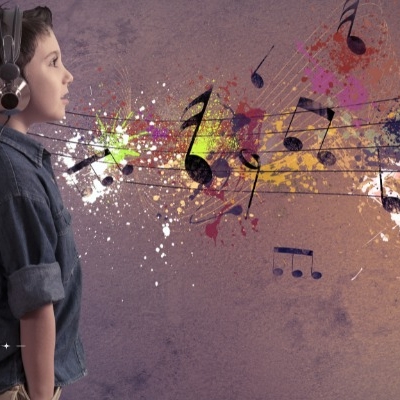
It was SO MUCH FUN! And, as my poor family can attest, I could try to add the highest, soprano notes possible. (Sorry Aunt Trish and sorry Red Hot Chili Peppers!)
It’s a similar process when it comes to learning a language. You hear your language(s) around you and you learn to speak it somehow. In the end, you’re not completely inventing your own language – that would defeat the purpose of language and communication – but you learn the language in your own way, in your own time. No two people do it exactly the same way, yet, we get there.
There are personal idiosyncrasies of course too, you develop your own way of speaking and expressing yourself, your own personality in the language. It’s the same with walking, riding a bike, drawing, sports… you name it!
Singing is similar. There is a history to it. We are not learning to sing in a vacuum. There are influences and traditions, but how each of us figures out how to “sing” and what we want to do with “our singing” is up to us – with a few exceptions, of course.
How each of us figures out how to “sing” and what we want to do with “our singing” is up to us
Robert Sussuma
Can a teacher – in the traditional sense of: “I know, you don’t.”; “Do this, do that.”; “This is the right way.”, etc. – be useful in this kind of organic learning process… NO! But, a vocal learning facilitator can be!!
WHAT IS FACILITATION?
Facilitation is the art of learning to guide another person to be in their own, personal process of learning and development in better and more effective ways WITHOUT getting in their way, telling them what to do, or how they should do it; without imposing our biases on them and the process (as much as possible).
It means helping them help themselves in a process that is theirs and theirs alone. It means fostering awareness, choice, variation, appreciation and improvement in such a way that it ALWAYS FEELS as though it’s all them and only them all the time.
Now of course this is an illusion of sorts, but we’ll get into that…
WHAT IS A VOCAL LEARNING FACILITATOR?
A vocal learning facilitator is a fellow traveler along the vocal path who, with their own experiences, ideas and abilities as the basis for somatic and pedagogical empathy engage with a person who is developing or refining their own vocal learning process.

We guide, we don’t instruct.
We witness, we don’t impose.
We get curious, we don’t take over.
We ask questions, we don’t give answers – even though we may have plenty of them!
We help the learning process along by co-creating situations in which the co-learners can figure something out for themselves rather than be given exercises, repetition regimes, excessive information and goals to be met without a process to organically get there.
ALWAYS THE WHOLE PERSON
With this approach, three things become very clear:
- If something is truly vocally, functionally, scientifically and traditionally “good” and/or “real” it will naturally emerge naturally in a well-guided and/or well-engaged in organic learning process without any force or superimposition. It will happen.
- Each person is already capable of and able to do something most other humans can do. The trick is to find their way to it that respects their own system and previous learning (some of which will need to be loosened or shifted along the way!).
- Not everyone does everything the same way! We can get to similar places in very different ways. We can also get to very different places that are still good, functional, healthy and sustainable in our own way. Or not. It’s cool. If we keep “letting the process process” it will unfold as needed.
This way of working ALWAYS respects the person, the WHOLE PERSON. Because we are a system of systems within a system of systems (our world/the world, etc.) as in the Bio/Psycho/Social approach to learning and development in which we develop as individuals within a system of systems on many levels at once.
And, they are all interacting at all times, of course!
KNOWING/NOT KNOWING
This is why it is so important as TEACHERS/NOT TEACHERS (aka Vocal Learning Facilitators) to know that we might know A LOT of things – technically, stylistically, physiologically, pedagogically, artistically, etc. but, we never know EVERYTHING.
There is always more going on in a situation than we may see or know.
So, how do we hold that in our awareness and include the unknown in the process too? How do we make space for space? How do we invite people into processes of inquiry and learning without closing things down too soon, making it about an end goal/state being achieved, without making it about us as “teachers,” and without contributing to the further compartmentalization of self that is so prevalent in our world?!
We stay open and we employ a few strategies that REALLY help:
SOME VOCAL LEARNING FACILITATION STRATEGIES
“Telescopic Globality” – this is the zoom in/zoom out principle. When we get specific about something we need to get equally and proportionally general/global at the same time. e.g. not just focusing on one sound/movement, but also spreading the awareness to include other related movements, sensations throughout the body, the environment, etc.
“Bury the Function” – let’s face it, there ARE some things that need to happen for certain sounds or vocal abilities to be possible, easy and successful, but instead of just “teaching” that directly, we “bury” them within an open, exploratory, organic learning experience in which they are there, but not too obvious – ideally not obvious at ALL – and the person/system/process can find it and figure it out in their/its own way – or not. Either way, learning occurs and of course it can keep going…
This is what one could call getting “Sneaky technique-y” – my students have “great technique” but they don’t think of it that way and they were NEVER taught a technique directly or overtly. It’s there. It works. They are doing it and they know it, but from the inside-out not the other way around.
If you want to know more about these kinds of processes and how to learn to facilitate them for YOUR students, check out…
This article is part of a series titled “HOW TO BE A BETTER VOICE TEACHER FOR YOUR SINGING STUDENTS”.
View all the articles in this series here.
TEACHER TRACK/“TEACH WITHOUT TEACHING”
In THE SINGING SELF PROGRAM, I have a special program for voice teachers called the TEACHER TRACK. That program is built around a 6-part (9 classes each part) series called TEACH WITHOUT TEACHING in which I guide voice teachers of all stripes and creeds through a process of learning to facilitate genuine somatic vocal learning for any student.
There’s a whole series on learning/facilitating strategies and another on advanced strategies. There’s another section on working with the whole person/system of systems, etc.
It’s a transformational course and will change your pedagogical understanding and learning-guiding style FOREVER! Are you ready to stop “teaching” and start facilitating!?!
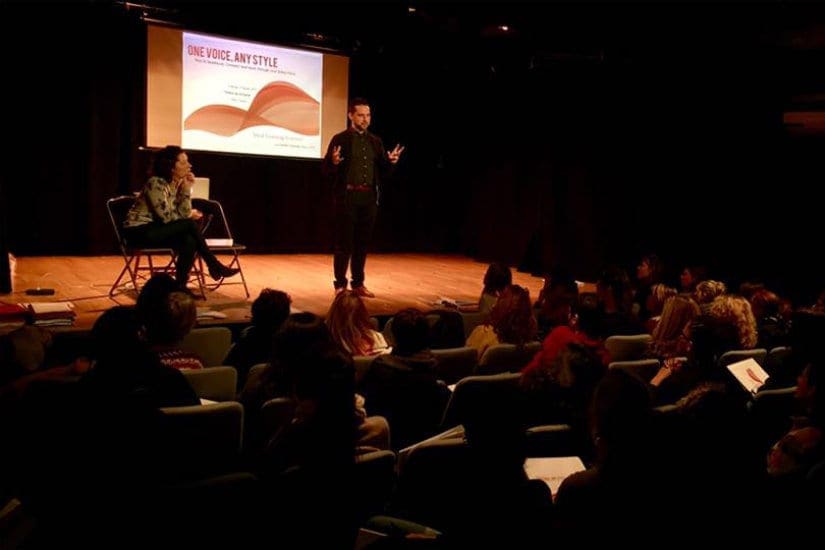
THE SINGING SELF PROGRAM – Teacher Track
will blow your mind by not only asking you to question all of your basic assumptions, but give you a framework for making the paradigm shift from a mechanistic view of voice and learning to a truly holistic and unified vision for the endless improvement of the body/mind/voice/self.

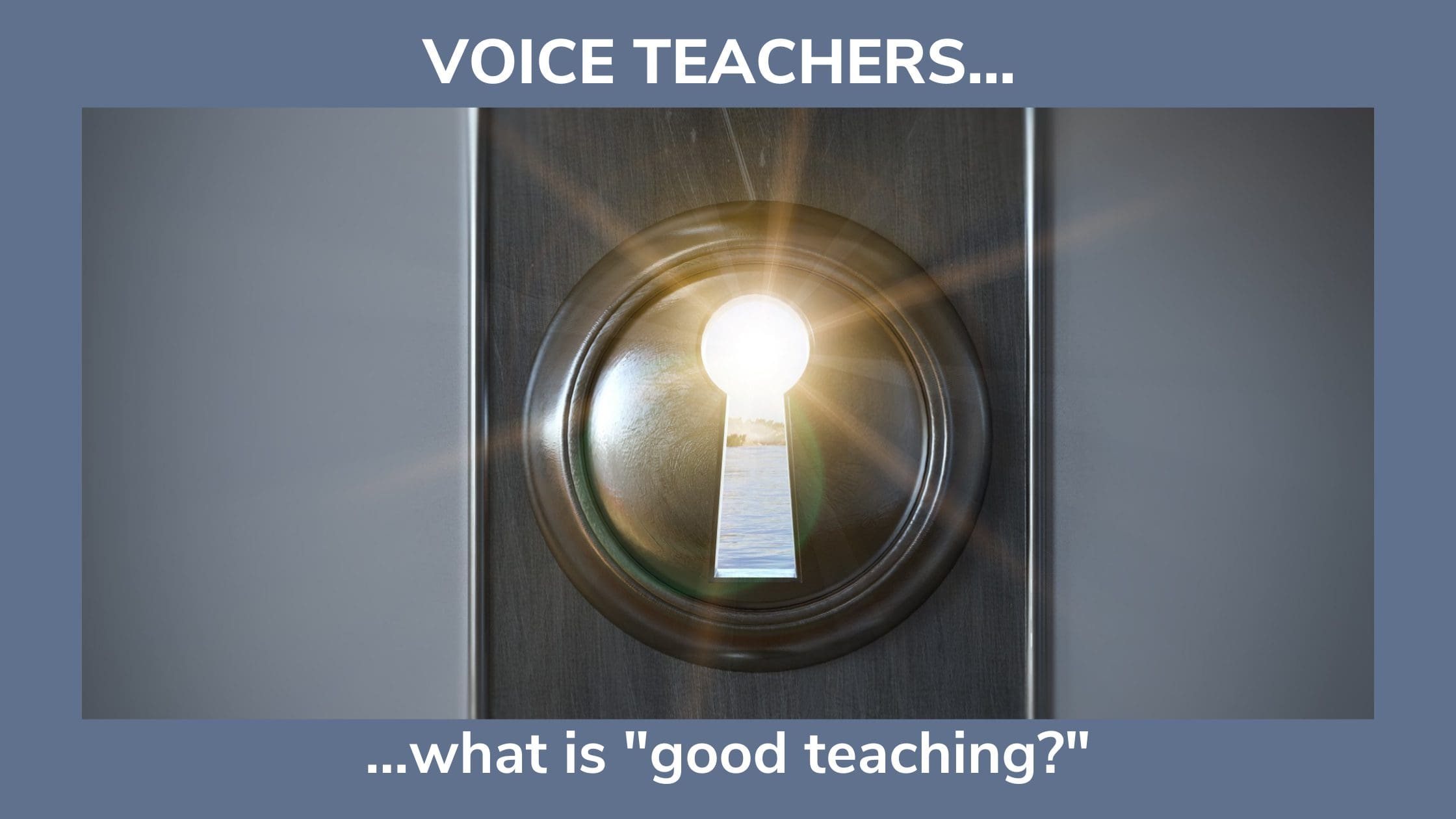
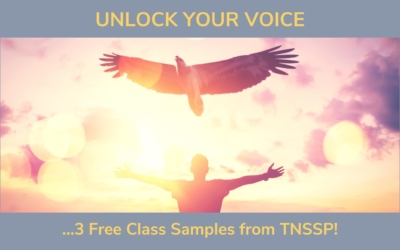
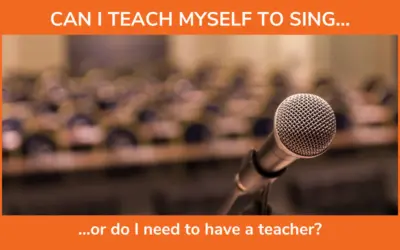
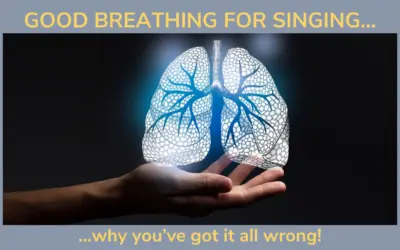
0 Comments